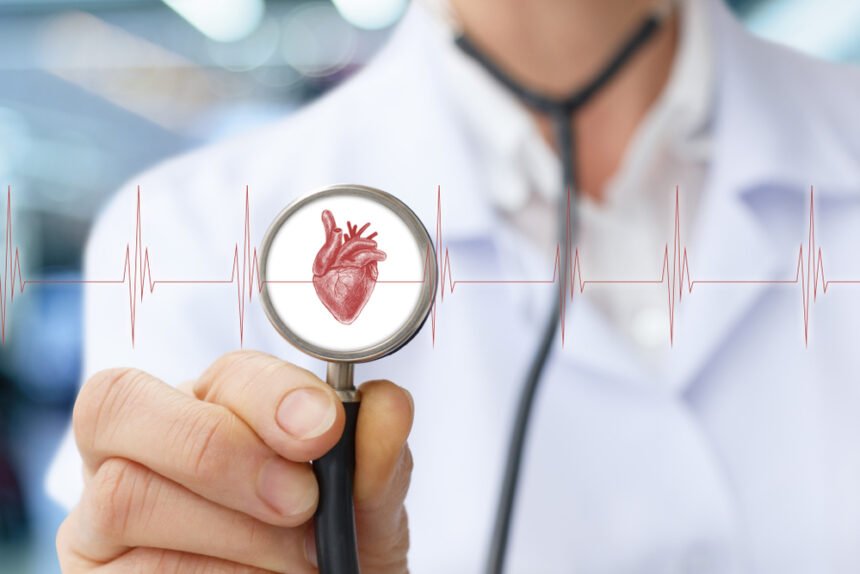Heart disease is America?s number one killer. Men and women are equally vulnerable. Seeing a cardiologist at the right time can save your life. You can?t simply waltz into a specialist medical office. You need to get a referral from your primary care physician. They?re trained to spot danger signs that need a closer look. You can be sent to a primary cardiologist or an interventional cardiologist. The latter group undergoes more training. Interventional cardiologists are considered to be pioneers in their field. According to CRTMeeting.org, former British Prime Minister Tony Blair will be one of the keynote speakers at 2019?s CRT conference. The website notes that ?CRT, one of the world?s leading interventional cardiology conferences, is attended by more than 3,000 interventional and endovascular specialists. At the 2018 meeting, CRT featured the first live complex coronary case performed entirely by women.? If you?re worried about your cardiovascular health, make an appointment to see your doctor. You?re more likely to be referred to an interventional cardiologist if your symptoms seem urgent. The following signs and symptoms should never be ignored. They could point to a cardiovascular issue.
Chest Pain
Everyone experiences heartburn. But if you start feeling discomfort that?s unusually persistent or intense, it?s a good idea to have basic tests run. Many heart problems can cause chest pain. If the pain becomes very bad or you have other symptoms as well, you should go to the emergency room rather than wait for an appointment. Sometimes, you can feel symptoms before a heart attack. Both genders are at risk, but the event manifests differently in men and women.
Family History
Did either of your parents or grandparents die of heart disease? It?s especially concerning if they died young and had other health problems like high blood pressure. There?s a genetic component to your cardiovascular health. Make sure you provide your medical team with an accurate medical history. A strong family history of heart disease might be enough to warrant a trip to a specialist.
Shortness of Breath
Trouble breathing could point to a problem with your lungs or with your heart. Your doctor will able to tell you which it is. Depending on the condition, you might be able to treat it. Even if it turns out that there?s nothing to worry about, you?ll feel relieved that you got checked out.
Type 2 Diabetes
Type 2 Diabetes is linked to heart disease. Patients who have one problem often suffer from the other as well. The medical community has determined Type 2 diabetes can be caused by obesity. The good news is that losing weight can mitigate the symptoms. When it comes to your cardiovascular health, your weight is one of the most important factors. A significant portion of the U.S. has a weight issue. This is dangerous because it leads to further health problems.
Smoking
Smoking raises your risk of heart disease. It?s a serious enough risk that all long-term smokers should see a cardiologist at some point. He or she or will be able to tell you if there?s any damage to your heart or plaque buildup in your arteries.
High Blood Pressure
High blood pressure can constrict your arteries. It?s connected to the other symptoms on this list. If your blood pressure is high, your doctor may prescribe medicine and lifestyle changes to get it under control. You should start monitoring your blood pressure when you become an adult. A worrying upward trend will be very easy to spot. Your primary care physician likely checks your blood pressure every time you visit. You don?t need to live with medical fears. If you think something is wrong, see the doctor. There?s a chance that he or she will agree with your concerns. A lot of heart problems can be treated by modern medicine. Ignoring a problem could be fatal. Nothing is as important as your health. Especially your heart health. You might not be able to avoid a serious problem. However, evidence shows that your lifestyle heavily influences the state of your heart. You can lead a healthy life by eating a diet that?s rich in nutrients and exercising regularly. They?re difficult habits to get into, but they?re absolutely worth it. Your heart won?t be the only organ that benefits. Modern medicine is one of the greatest aspects of our world. People who previously would have died are now leading full, active lives. Preventative medicine can do this. You can fight certain cardiovascular ailments.

